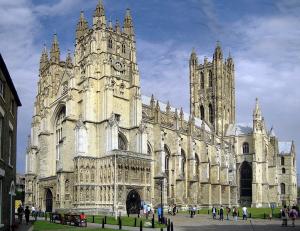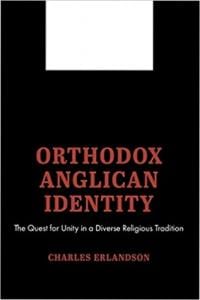 The Global Anglican Spirituality
The Global Anglican Spirituality
The first Lambeth Conference of 1867 and the creation of the Anglican Communion created a sense of a larger Anglican identity, as well as the need for authority to deal with provincial church relations. But for the most, until 1998 Anglicanism was treated in almost every academic work as being the English and American churches.
So what happened in 1998 that changed everything? The 1998 Lambeth Conference is what happened. When the time came for the famous vote on Resolution I.10 on human sexuality, the world suddenly discovered the majority of Anglican bishops had dark skin – and were in favor of biblical understandings of human sexuality. It’s not that there hadn’t been Anglicans in places besides England the U.S. before: it’s just that nobody paid attention. Now, however, the new technologies and modes of communication have begun to make an awareness of this diversity much more readily available, while at the same time facilitating the networking of orthodox Anglicans globally.
It’s especially important that orthodox Anglicans come relatively soon to a better understanding of the Global Anglican spiritualities present in the largely orthodox Global South. Do orthodox Anglicans in the U.S. adequately understand the diversity present in these provinces and the dynamics of continued inculturation and diversification?
The Global Anglican spirituality is represented by the ways in which Anglicanism, especially orthodox Anglicanism, has been inculturated into the former English colonies. It’s a complex identity for at least two reasons, and these complexities hold important clues to the probable future of orthodox Anglican identity. First, although I’m using the term “Global Anglican spirituality” as if it were a single entity, in reality, each Anglican province has a unique context. It is more accurate and appropriate, therefore, to think in terms of Global Anglican spiritualities. What the provinces have in common is the fact that the Anglican form of Christianity, which represents the catholic and universal aspect, is in the process of being inculturated into a local environment. The diversity in the global provinces is the result of the different cultures and histories into which Anglican Christianity is being inculturated, and different provinces are inculturating at different speeds, from different starting points, and in different ways.
The second complexity is that the Global spirituality of a particular province is itself a complex phenomenon that is both similar to the Anglicanism from which it originated (often, as embodied in particular mission groups) but that also incorporates other elements. The identity of any particular Global spirituality is, therefore, is not a single process or picture that represents the logical and organic outgrowth of what was originally planted but is more like a palimpsest on which a succession of identities are written, while the earlier identities remain to interact with newer identities. This complex identity may be captured by the word “hybridity.”
It’s important to understand the process of inculturation in Christianity in general and the Global Anglican spirituality in particular. None of the former British colonies will have a history that looks like that of the Anglican church in either England or the U.S. Often, missions, and not churches, were planted. These missions were typically planted by missionary societies, and not the Church itself. More often than not, these were Evangelical, and often the churches that were planted had less of an emphasis on the church, sacraments, church year, etc.
The Global church I’ve looked most closely at is the Church of Uganda (COU), which is the result of at least five different Anglican movements or spiritualities that interact:
1. the origins in the mission work of the Church Mission Society (CMS)
2. the East African Revival
3. the traditional Prayer-Book and clerical Anglican identity
4. the indigenization of Anglicanism into the local culture
5. the global Charismatic/Evangelical spirituality that has been imported from the West in
recent decades.
What Anglicanism looks like in the Global South may not always look very much like the Anglicanism we take for granted in the U.S. Spiritual discernment is required to determine what are the most fundamental Anglican principles, to see how some of these may be weak in the Global South, and to see how these principles might be authentically inculturated in surprising ways.
In general, Anglicanism in the Global South often has these characteristic:
1. Sometimes weak on church, sacraments, church year, etc.
2. There is a move to use freer liturgies
3. There is a felt need to compete with Pentecostals and to become more like them
4. Anglican identity may be weak: to be a Protestant or to be a Charismatic is to be an Anglican
5. The Global South churches have a lot in common with the Charismatic spirituality, including: an emphasis on miracles and demonic activity, emotionalism, power theology, and an emphasis on experience over theology.
6. By their own admission, the faith and theology of the Global South is often very wide but not very deep.
The challenge for English and American Anglicans will be to consider prayerfully with our Global South brothers and sisters how we may grow closer together, determine a common Anglican identity, and learn from each other’s strengths.
I’m as uncomfortable with seeing the Global South as the savior of the West as I am with Western triumphalism.








